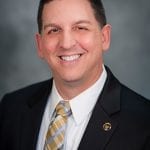
To effectively battle COVID-19, we all need reliable, accurate information. But what if you can’t understand the medical information your healthcare provider gives you? Health literacy is the ability to get, read, understand and use information to make appropriate health decisions and to be able to follow your provider’s instructions for treatment. But too many of us can’t do that, which poses a serious challenge during this pandemic. For advice, we turn this week to UCF experts on health literacy — Richard Zraick, an expert in clinical skills training at the School of Communication Sciences and Disorders, Ann Miller, an expert in health communication, and Mary Schmidt-Owens, a leader at UCF’s Student Health Services.
Health literacy allows you to be empowered about your health and medical care. If you are health literate, you can find key messages, understand those messages, act on the information you receive and remember that information so it continues to impact your behavior. But a study by the U.S. Department of Education found that 36 percent of people – more than 1 in 3 — scored as “basic” or “below basic” in terms of their health literacy. That means they might be able to circle a date on the calendar for their next clinic appointment but could not understand directions such as “Take one tablet every 12 hours with food” on their prescription bottle. People over age 65, those with lower socioeconomic status and education, and those whose first language is not English are at the highest risk for health illiteracy. That makes health literacy the biggest social determinant of health – those who cannot access health information have the poorest health outcomes.
Don’t think problems with health literacy could never happen to you. Studies show that 3 to 5 percent of college-educated adults have poor health literacy. Why? Those of us lucky enough not to have a chronic health condition may not have much experience with visits to healthcare providers, the medical jargon they can use, and the hand-outs of instructions we often receive after a visit. Plus, going to the provider can be stressful – you’re unsure what’s wrong, you don’t feel well, you’re anxious. Those emotions can impact your understanding of what you’re being told. College students often have limited health literacy because their parents took the lead in handling their healthcare needs before they left home. Parents asked all the questions, filled out all the forms and told their child when and how to take prescriptions. As one student recently told a Student Health Services provider, “When I filled out my medical history form, I had to call my dad. The only thing I could fill out was my name and address.”
What’s the solution? First, if you’re a patient, don’t leave your healthcare appointment without having answers to these three questions:
- What’s wrong with me?
- What do I have to do to take care of this problem?
- Why do I have to do this? (What happens if I don’t take the action you’re recommending?)
Healthcare providers also play an important role in this effort. Are your handouts, website and marketing materials simple in terms of words and images? Or are they complex, wordy, overwhelming? Also, pay attention to the three cues that a patient isn’t understanding what you’re saying: Your patient asks no questions, asks too many questions or says nothing and leaves it to their companion – spouse, partner, child – to ask the questions.
One way providers can improve their patient communication is with the “teach back” method. After you tell a patient what you need them to do, ask them to tell you in their own words what they are supposed to do at home to care for their health problem. If they don’t give the right or complete answer, reteach the information and ask again. Research shows the “teach back” process adds less than a minute to most patient encounters and achieves tremendous improvement in patient satisfaction and adherence to prescriptions and other therapies, while reducing re-visits to the clinic and negative health outcomes. Teach-back is such a powerful tool that a study is currently underway on its use and effectiveness at Student Health Services. Results are expected soon.
Dealing with COVID-19 – and any health condition – is scary and unsettling. But it’s even more frightening if you can’t get – or understand – what you need to do to get better. That’s why we need to work together to improve health communications and health literacy.

Expert in Health Communication

UCF’s Student Health Services

Clinical Skills Training,
School of Communication Sciences and Disorders
COVID-19 health tips are brought to you by UCF’s Academic Health Sciences Center (AHSC), which includes the Colleges of Health Professions and Sciences (CHPS), Medicine, Nursing and Student Health Services.
Post Tags
- covid COVID-19 flu health literacy health tips
